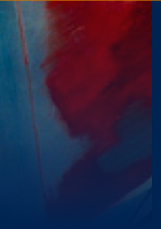
Conference Theme
The one and the many: the conundrum of this relation is as old as thought itself, religious and philosophical, west and east. How do relations between the many add up to meaning—without effacing difference? How does difference retain its integrity—without dissolving multiplicity? How does multiplicity find coherence—without being mastered by the logic of the One? How are conceptions of ultimate reality in its relation to cosmic diversity at once symptoms and cures of the conundrum?
Relations between one and many remain discursively inseparable from relations between divinity and cosmos. Are new meanings of singularity, unity, difference and multiplicity emerging along with new conceptualizations of relationality itself? Might alternative conceptions of divinity and cosmos be already—under the pressure of deconstruction and in the force field of planetary pluralities—altering our understanding of the one and the many? Might the theological have an irreducible role to play in the renegotiation of the archaic conundrum? For example, what fruit might an exploration of the tensions between trinitarian symbols and religious pluralism yield? The Tenth Drew Transdisciplinary Theological Colloquium offers the divine multiplicity as a trope for conversation on these manifold questions.
Traditionally, discourse about inter-religious encounter has tended to focus on the issue of the multiplicity of religions, as human cultural products and/or symbol systems—i.e., as part of irreducible creaturely diversity of creation—in relation to the divine. This often entailed a conceiving of the divine in singular and universal terms—whether as the Ultimate, the Abyss, the Universal, or as the God of Classical Theism, Panentheism, Pantheism, or Deism; there was one divine reality to which multiple religious phenomena pointed or was in relation. This assumption with regard to the singular and universal divine reality has been critiqued as expressive of the imperialism of western liberal discourse. But mere disjointed plurality of autonomous religions may also express a western prejudice.
If religions no longer appear as internally homogenous 'ones' comprising a global many, but rather as internally multiple practices, enmeshed in complicated overlaps with other 'religions,' what is the role of "comparative theology"? Does religious pluralism begin to be conceived not just in terms of religious diversity, but in terms of divine diversity, or an ultimate and not merely plural multiplicity? This conversation is open and ongoing.
In a parallel discourse, concern over the organic relation between theological discourse and socio-ethical reality has given rise to a critique of monotheism as complicit in monarchical, hierarchical, totalitarian and exclusionary socio-political orderings of creaturely relations. The constructive moves accompanying this critique argue for theological conceptions of divine multiplicity as the needed remedy, to the extent that such conceptions entail an affirmation of radical relationality as constitutive of divine reality. Such theological conceptions are said to model non-hierarchical, egalitarian relationality as constitutive of creaturely life and so of the just and sustainable ordering of that life. This development has been explicit within Christian theology in the retrieval of trinitarian thought—perhaps surprisingly: for trinitarian thought, which, in its organic relation to Christology, has traditionally been considered the uniquely exclusionary site of Christian theology in relation to other religions, is now being offered as the key to more inclusive and egalitarian neighborly relations. A further complication: does such an offer, coupled together as it most often is with a severe critique of monotheism—of "the logic of the One"—carry within it an often unacknowledged denigrating and exclusionary violence of its own? For example, against the neighboring monotheistic traditions of Judaism and Islam?
Can pluralist and trinitarian discourses be put into fruitful conversation with one another? Can divine multiplicity become a new site for the discourses of inter-religious dialogue and religious pluralism? Is there an ethical common ground with regard to theological resistance to oppressive socio-political hierarchies that can bear the weight of real religious and theological difference—even of divine difference? Does a shared commitment to divine multiplicity across religious identities eclipse the religions' distinct conceptions of that multiplicity by making them simply various species of an abstract common genus? Might a discourse of the divine manifold begin to collect within itself a convergent diversity of orthodox and heterodox, postcolonial, process, poststructuralist, feminist sensibilities? Might they gather not for the sake of competition or unification—but of a theological manifold and a planetary multitude?

